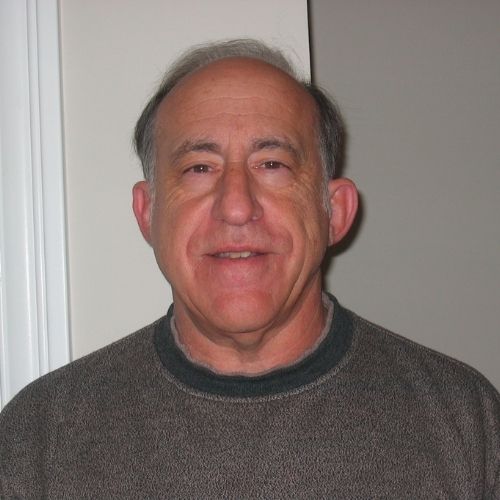What led you to join SME? For how long have you been a member?
I joined SME as a student member my freshman year in college. One of the professors stressed membership as a way of supporting and keeping tabs on industry events and practices. This year makes my 53rd year of membership, and although retired, the reasons for joining haven't changed.
What initially led you to pursue your profession? Why did you stay in your profession for 40+ years?
By 5 years of age, my interests showed that I was wired to be an engineer. Side tracked by a keen interest in architecture in high school, I noticed many of my classmates were also interested in this field. Well, if it's "mainstream", I'm out. Going back to my roots, I used to gaze through a chain link fence to view the workings of a nearby quarry. From a certain vantage point I could see the drilling, loading, and processing operations that seemed well choreographed. Having a strong interest in geology (I donated my extensive fossil collection to my Junior High) it occurred to me that this mining thing requires knowledge in a variety of subjects; is necessary to the U.S. economy (so jobs should always be available) and it certainly wasn't mainstream. Not bad thoughts for an 18 year old.
The things that "hooked" me into the industry stayed with me for all these years. I define mining engineering as that which is necessary from exploration to getting rock to the crusher. I strove to be proficient in all related mining areas, i.e., geologic interpretation, design and planning, drilling and blasting, ventilation, water handling, surveying, design/build of concrete and steel structures, management, safety, etc. The sense of accomplishment is very strong; and I look back fondly on my many experiences.
How has being an SME member enhanced or shaped your career?
Belonging to SME was helpful in watching the pulse of the industry. Areas of research, products, events, and networking with colleagues was all possible. SME is a means to escape from potentially working in a bubble, and was helpful while the industry was dealing with the impacts of the EPA and MSHA.
Favorite SME member benefit(s) to take advantage of?
I always liked the book store. An engineering library is paramount, and the selection is extensive. I bought a lot of general engineering books at garage sales but mining books - that's best obtained from the horse's mouth. The library is a great source and a great value too.
What do you find to be the most challenging aspects of your job?
My career was composed of two distinct parts; operations and consulting. Each of these had their own distinct challenges. Both focused on problem solving of course; that's what engineering is. They differ in the way problems are solved. Consulting, unless you're on your own (and I've done this too) is very bureaucratic, and, unfortunately can be political as well. It's difficult to have your solution be made unrecognizable after going through multiple layers of management. And one's degree of input heavily depends on one's supervisor. This can be excellent or it can be a disaster.
Operations is, in my case, entirely different. Twice I started underground limestone mines from the exploratory phase to hauling to the primary; being the entire mining and geology departments. When responsible for everything - there is no place to hide. The challenges came from all directions, i.e., labor, management, nature, and Murphy (Murphy's Law). All this, with the undertow that at any given time a fatality can occur. Fortunately I never had to deal with this experience.
What do you find to be the most rewarding aspects of your job?
The most rewarding aspect of my career is the powerful sense of accomplishment and the sense of being part of something; of doing things that you can see take place; of doing something that is actually important. My career, in a way, was like architecture. Mine design and construction is similar to building structures, but instead of creating spaces by assembling materials, spaces are created by removing rock. And these spaces can be quite dramatic given multi-levels, ramps, shafts, etc. And, since underground mines tend to last a long time, I will have left several footprints on earth that should last long after I'm gone; provided the plans and files with my name on them still exist.
Who has been key in shaping your career, and how?
Other than some college professors, a key colleague/mentor who helped show me "the way" was the late Frank Kendorski. He opened my eyes in many directions. He wasn't afraid to push the envelope in knowledge or experience. "We'll figure it out", he'd say. He taught me to do all work as though I'd have to defend it in court someday. And although I "only" had a B.S. degree in mining engineering, he stressed publishing papers and participating in seminars and lectures, as our experiences are valuable to others.
In what ways have you seen the industry change since you first began your career?
The industry has changed a lot in 40 years. I remember it took about a minute to drill one foot in a face round. Now it's about 16 feet in 90 seconds! I remember scaling for hours by hand. Now it's done by machine. And certainly safety and health has improved leaps and bounds. Noise and dust is much better controlled. Explosives are much safer too.

